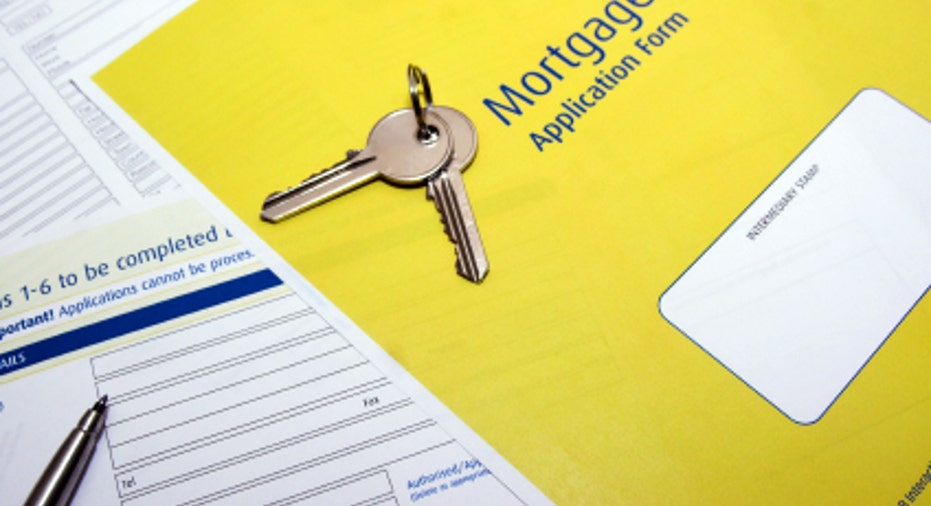Why a Refinance Is a Great Way to Invest

In recent years, a whirlwind of trouble battered the nation's housing market. As the crisis deepened, home values went into a free-fall and millions of Americans abandoned their homes to foreclosure.
But in the middle of these storm clouds, a single ray of light emerged: Mortgage rates fell to historic lows, making both new and refinanced home loans more affordable than at any time in recent memory.
Rates remain low, making now a great time to refinance, according to Ramesh Garg, professor of finance at Eastern Michigan University in Ypsilanti, Mich. In the following interview, Garg offers some tips for those who remain unsure of whether now is the time to replace their current home loan.
With mortgage rates below 4%, is now the time to refinance?
With mortgage rates at historic lows, it is a great time to refinance. Rates this low may be the opportunity of a lifetime for a homeowner who is seeking to lock in a fixed lower monthly payment for an extended period. Homeowners should explore a refinancing option if the going interest rate on a mortgage loan is lower than the interest rate on their existing loans.
Many households still tend to procrastinate on this strategic financial decision that can save them thousands of dollars in interest cost over the life of the loan. Even after paying for the closing cost of refinancing, it may be well worth it to refinance unless the person is intending to relocate within a short time.
What are the benefits of refinancing?
(The) home mortgage is the biggest loan for a typical household. Refinancing allows the homeowner to enjoy lower monthly payments for an extended period. Even with a five-year adjustable-rate mortgage, one can enjoy a fixed lower payment for 60 months with the prospects of adjusting the rate thereafter.
Lower monthly payments allow a household to spend more money on other consumption items, including discretionary ones. It helps the family budget in a big way when the costs of other things like gasoline are going up. Moreover, lower monthly payments allow the household to pay off the entire mortgage loan sooner rather than later. Having extra money on hand, a household can make extra payments toward the principal balance every now and then.
One should keep in mind that this is the most secured way of investing one's savings, as it earns the same rate of return on the money at which one has borrowed. The banks today give less than 1% return on the savings deposit.
Besides cost, what should homeowners keep in mind before deciding to refinance?
There is always some closing cost to refinancing. Some lenders are willing to share this cost by allowing some sort of "rebate" depending on the amount of the loan to be refinanced. So, one should shop around for getting the best deal when it comes to refinancing.
Under the federal Truth in Lending Act, the lender must disclose to the borrower the annual percentage rate and provide a good faith estimate of the closing costs within three business days of the mortgage application.
The most important factor that a homeowner must keep in mind before deciding to refinance is the length of time he or she is intending to stay in the house. One should be able to calculate the payback period of a refinancing decision. The payback period is the time it takes for the homeowner to recover the cost of financing from the savings originating from lower monthly payments. If one plans to stay in the home beyond the payback period, it would be worthwhile to go ahead with refinancing.
While refinancing, the homeowner must pay close attention to the prepayment penalty clause that may limit future refinancing opportunities.
Do you think mortgage rates will go any lower? Why or why not?
There is a much higher probability now that mortgage rates are likely to go higher rather than lower. As I stated earlier, mortgage rates are at historic lows and are being kept "artificially" lower by the Federal Reserve in a pursuit to follow easy monetary policy in order to propel the economy out of recession.
At present, we have a negative real interest rate, where the nominal interest rate does not even compensate for the rate of inflation. The Federal Reserve has been monetizing the debt by purchasing the Treasury securities that are being issued to finance the massive federal deficit. This has enlarged the Federal Reserve's balance sheet and at some point, the U.S. central bank may decide to follow an exit strategy and, in fact, may begin selling U.S. Treasury and mortgage-backed securities.
As the economy (is) showing signs of recovery with (the) unemployment rate lowering, the interest rates can only go up. Any good news on Main Street becomes bad news for the interest rates.
The housing market is the one that takes the economy into a recession and is also the one that takes the economy out of recession. Lately, the housing market is showing strong signs of recovery.
Having positive home equity creates a wealth effect to the homeowners, with a brighter outlook for the future. This gets the ball rolling for the housing industry, allowing homeowners to sell their homes and move on to their next dream homes.
All these factors will cause inflation to pick up, and that certainly will lead to higher mortgage rates in the near future.
We would like to thank Ramesh Garg, professor of finance at Eastern Michigan University in Ypsilanti, Mich., for his insights.



















